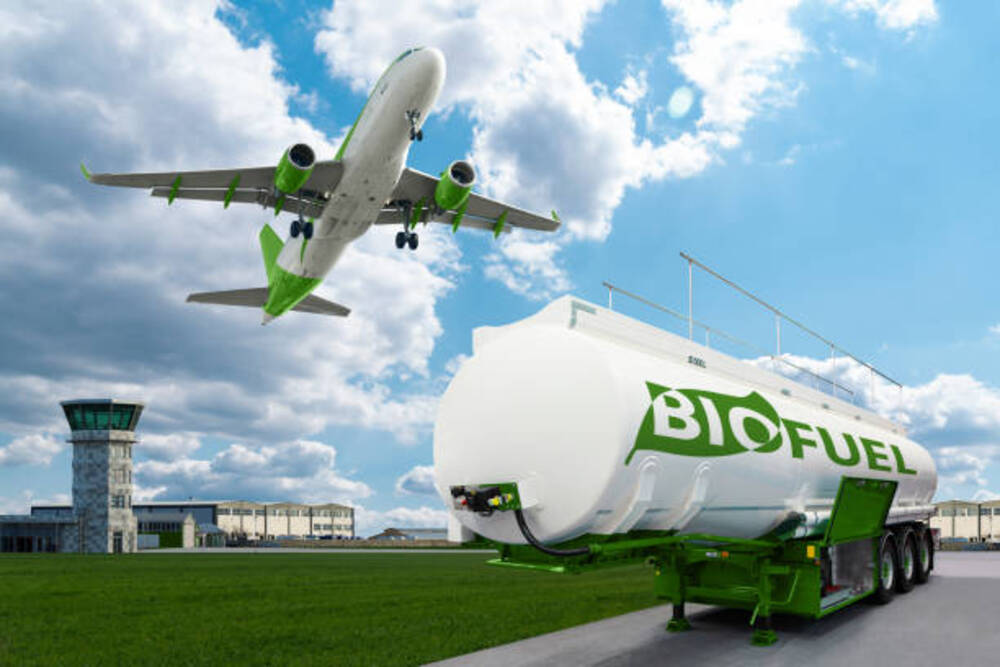The aviation industry is under intense pressure to reduce its carbon footprint and transition to sustainable aviation fuel (SAF). The European Union (EU) has set ambitious targets of using sustainable aviation fuel for 10% of all jet fuel by 2030.
However, despite the urgency, the production and adoption of SAF in Europe have been slow. Here are the challenges facing Europe’s aviation industry in producing and adopting green fuel.
Concerns over the regulatory environment
Repsol, an energy giant building a 200 million euro SAF plant in southeast Spain, has raised concerns over the regulatory environment in Europe. The company believes that legal instability and complex regulatory machinery in Europe discourage innovation and investment. In contrast, Repsol sees the US as more supportive of companies with financing and developing new solutions.
Laurent Donceel, acting managing director of lobbying group Airlines for Europe, also expressed his concerns over Europe’s approach, which he claims focuses on mandating change rather than incentivizing it. Donceel believes that Europe should follow the US and provide tax incentives to boost SAF production.
Challenges SAF faces with
Production challenges
In addition to regulatory concerns, the production of SAF is a major challenge facing the aviation industry in Europe. SAF is produced from feedstocks such as waste oils, agricultural residues, and sustainable biomass. However, the availability of these feedstocks is limited, and the cost of production is currently higher than that of traditional fossil fuels.
The production of sustainable aviation fuel requires significant investment in infrastructure. Among other, including refining plants and pipelines. It is also a complex process that requires the use of advanced technologies. They further adds to the cost of production. These challenges make it difficult for the industry to scale up SAF production to meet the demand.
Adoption challenges
Even if sustainable aviation fuel production is scaled up, there are challenges in the adoption of the fuel by the aviation industry. SAF is currently more expensive than traditional jet fuel. This makes it unaffordable for many airlines. As a result, there is a lack of demand for sustainable aviation fuel. Consequently, it hinders its adoption.
Furthermore, sustainable aviation fuel is currently only available at a limited number of airports. This limits its use by airlines. Infrastructure investment is required to expand the availability of sustainable aviation fuel at all airports. And this is another cost that airlines need to bear.
Public perception
The public perception of the aviation industry is also a challenge in the adoption of SAF. The aviation industry is often seen as a major contributor to climate change, and many people believe that the industry should be doing more to reduce its carbon footprint.
Sustainable aviation fuel is often viewed as a “greenwashing” solution. If so, it does not address the root cause of the problem. Some environmental groups argue that the industry should focus on reducing the number of flights rather than investing in SAF.
Europe needs to step up support for domestic SAF Industry
The aviation industry is responsible for approximately 2.5% of global carbon dioxide emissions. In an effort to reduce the environmental impact of air travel, the use of sustainable aviation fuel (SAF) has gained momentum as an alternative to traditional jet fuel. However, the production of SAF is still in its infancy, and the industry requires significant support from policymakers to develop and expand.
True, Europe has been a leader in promoting sustainable aviation fuel. The European Union set a target of 2% of jet fuel to come from renewable sources by 2025, and 5% by 2030. However, the production of SAF in Europe is still insufficient to meet these targets. Currently, Europe only produces approximately 20 million litres of SAF per year, which is less than 0.1% of the total jet fuel consumed by the aviation industry in Europe.
Europe should invest in SAF research
To meet the EU targets and reduce carbon emissions, Europe needs to step up support for the domestic SAF industry. This could include increased funding for research and development, tax incentives for producers and users of SAF, and regulations that promote the use of sustainable aviation fuel.
Supporting the domestic SAF industry would not only help reduce carbon emissions but also create economic opportunities. The production and use of SAF can create jobs and stimulate economic growth. It can also reduce Europe’s reliance on imported oil and increase energy security.
Europe needs to step up support for the domestic SAF industry to meet its environmental and economic goals. This requires a comprehensive approach that includes funding, incentives, and regulations that promote the development and use of sustainable aviation fuel. By doing so, Europe can lead the way in reducing the environmental impact of air travel while creating economic opportunities for its citizens.

